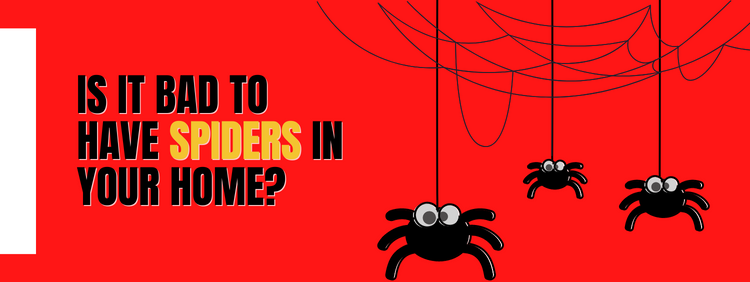 Arachnophobia, or the fear of spiders, is one of the most common phobias, and if you experience anxiety at the sight of eight-legged interlopers in your home, you may be interested in spider control. However, are these fears unfounded? Is it actually beneficial to have spiders in your home? If so, does this mean that you shouldn't take action against them?
The truth is less straightforward than the questions would suggest. Spiders are not as dangerous as many people believe them to be, and they do provide some significant benefits. Nevertheless, having them in your home can be a problem that only spider removal may solve.
Arachnophobia, or the fear of spiders, is one of the most common phobias, and if you experience anxiety at the sight of eight-legged interlopers in your home, you may be interested in spider control. However, are these fears unfounded? Is it actually beneficial to have spiders in your home? If so, does this mean that you shouldn't take action against them?
The truth is less straightforward than the questions would suggest. Spiders are not as dangerous as many people believe them to be, and they do provide some significant benefits. Nevertheless, having them in your home can be a problem that only spider removal may solve.
 Arachnophobia, or the fear of spiders, is one of the most common phobias, and if you experience anxiety at the sight of eight-legged interlopers in your home, you may be interested in spider control. However, are these fears unfounded? Is it actually beneficial to have spiders in your home? If so, does this mean that you shouldn't take action against them?
The truth is less straightforward than the questions would suggest. Spiders are not as dangerous as many people believe them to be, and they do provide some significant benefits. Nevertheless, having them in your home can be a problem that only spider removal may solve.
Arachnophobia, or the fear of spiders, is one of the most common phobias, and if you experience anxiety at the sight of eight-legged interlopers in your home, you may be interested in spider control. However, are these fears unfounded? Is it actually beneficial to have spiders in your home? If so, does this mean that you shouldn't take action against them?
The truth is less straightforward than the questions would suggest. Spiders are not as dangerous as many people believe them to be, and they do provide some significant benefits. Nevertheless, having them in your home can be a problem that only spider removal may solve.

